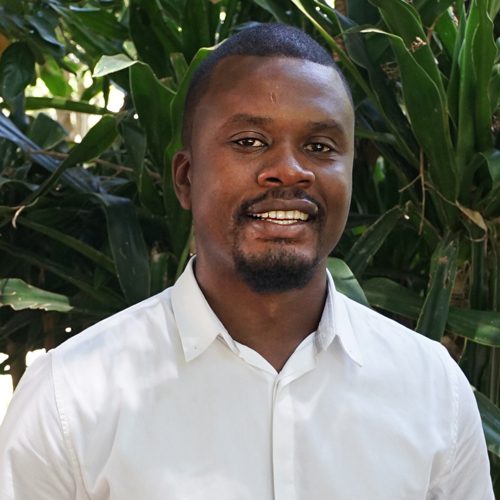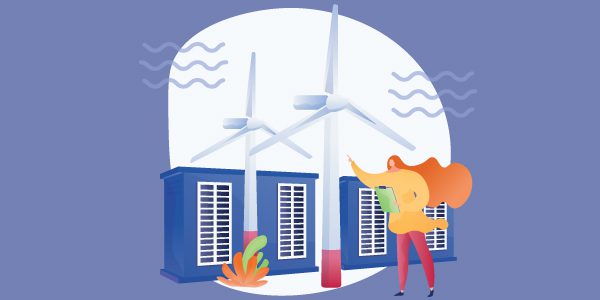The African renewables industry has seen tremendous growth in recent years, with many countries across the continent setting ambitious targets for renewable energy deployment.
In Africa, the total installed renewable energy capacity is forecasted to increase by 27.3 exajoules (EJ) from the current (as of 2022) 1.3 EJ installed. However, this growth has highlighted a shortage of skilled professionals with the expertise needed to design, build, and operate renewable energy projects.
Skills Shortage
Much like the rest of the world, our industry is experiencing a talent shortage. However, we have one significant advantage, that if we utilise it, can turn us from lagging behind to leading the world in renewable energy, and that advantage is our growing, young population.
We don’t have a shortage of candidates (in fact, we have the opposite), however, we have a shortage of knowledge and talent. But, with the right plan and collaboration of various key groups, we can change that. Those key groups? Government, tertiary education institutions, and private organisations. All three are critical to preparing our current and future generation in our growing green industry.
However, before we can make plans, we need to look at the gaps! In my experience as a recruiter, I have identified key gaps in our industry that I believe should be addressed.
Technical Expertise
One of the main areas where skills are in short supply is technical expertise in renewable energy technologies. This includes skills in solar PV and wind turbine design, installation, and maintenance. Many renewable energy projects in Africa are still in the early stages of development, and there is a need for skilled engineers, technicians, and other technical professionals to design and build these projects.
Project Management
In addition, there is also a shortage of professionals with project management skills. With the growth of the African renewables industry, there is a need for professionals who can manage large-scale renewable energy projects from start to finish. This includes skills in project planning, risk management, and stakeholder engagement.
Energy & Regulatory Expertise
Another area where skills are in short supply is energy policy and regulatory expertise. Many African countries are still in the process of developing policies and regulations to support the growth of the renewable energy industry. There is a need for professionals with expertise in these areas to help shape policy frameworks that support the deployment of renewable energy projects.
Financing & Investment Expertise
Financing and investment expertise is also in high demand. While the cost of renewable energy technologies has decreased significantly in recent years, financing remains a key barrier to the deployment of renewable energy projects in Africa. There is a need for professionals with expertise in project finance, investment, and risk management to help secure funding for these projects.
Local Community Engagement & Social Impact Expertise
Finally, local community engagement and social impact expertise is also critical. Renewable energy projects can have significant social and environmental impacts, and it is important to engage with local communities and stakeholders to ensure that these impacts are positive. There is a need for professionals with expertise in community engagement, social impact assessment, and stakeholder management to ensure that renewable energy projects are developed in a socially responsible manner.
Skills Shortage Solutions
As I mentioned earlier, the role of governments, tertiary education, and private sector organisations in helping professionals develop the skills needed to support the growth of Africa’s renewables industry, is significant. Without their cooperation, we will not be able to close the knowledge gap. As we can see from the identified shortages, most of this can be addressed by increasing investment in education, training programs, and development opportunities (like traineeships, internships etc).
While the three need to work together, they each have their own separate functions.
Government
Investing in projects is fantastic and we’re already seeing that across Africa, whether it be by incentivising foreign investment or allocating government funds to projects. What the government needs to do now is to invest in education. Whether it be setting up renewable energy councils (that can offer educational opportunities or certifications like Clean Energy Australia, for example) or increasing scholarship opportunities at universities, the government needs to take a bigger step into education.
Tertiary Education
There needs to be clear pathways for students to prepare for a job in renewable energy. Increasing the role of career advisors could help significantly. Additionally, enticing foreign talent to be guest lecturers or professors is another way to train students, not just in processes but also in new and emerging technologies. Offering programs and projects can help students increase their experience in skill areas are also excellent ways to kick-start an entry-level candidate’s career.
Some projects can be internal and some can be nation-wide competitions (which can be done with the government), for example; in the US the Department of Energy offers a wind energy collegiate competition, which sees universities competing to design turbines. Besides experience, students can gain extra college credits for competing, which is a great incentive to increase participation. Additionally, these competitions are fantastic for fostering innovation – which is what our industry needs!
Private Sector Organisations
Private sector organisations play a huge role in renewable energy in Africa. They can provide funding to help support projects and up-and-coming talent. Renewable energy companies can work with universities to provide internship and scholarship opportunities to help support the new generation of workers and to widen the talent pool. Giving them experience will increase their knowledge and close the skills gap. Additionally, learning doesn’t just stop at school, companies should offer upskilling opportunities at work to help train juniors so that they can advance in their career.
In conclusion, the African renewables industry has tremendous potential, but it will require skilled professionals with the right expertise to support its growth. By investing in education and training programs and supporting professionals in developing the necessary skills, we can help to ensure that the African renewables industry continues to thrive and contribute to a more sustainable future for the continent.












